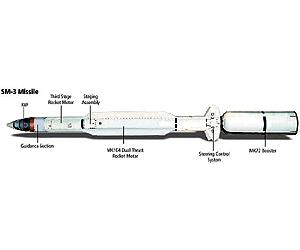Russia
«Дело «МК» как зеркало времени.
11 Apr 2013«Отнюдь не каждый политический материал газеты «МК» вызывает у меня восторг как у журналиста. Тем более что как немец я всегда ищу волосок в супе. Но в ставшей знаменитой статье большевичка Любовь Яровая, которая «сдает» собственного мужа, — убедительный прототип современных «танков в юбке». И фактура убедительная… 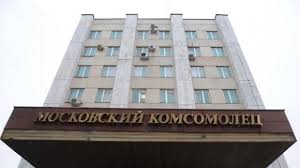
Но все-таки я сомневаюсь, что женщины в современной российской политике, и конкретно в Госдуме, опередили коллег-мужчин в стремлении подстраивать свои убеждения под актуальные потребности власти ради сиюминутных, а еще лучше постоянных выгод. Беспринципность и оппортунизм — были и пока остаются прерогативой преимущественно мужского пола. Сколько представительных мужчин — и в Думе, и вне ее — ходят в нравственных юбках гораздо короче, чем у женщин-политиков?
Критиковать статью Георгия Янса можно только за то, что он недостаточно широко обрисовал образ современного российского политика. Подобных, кстати, хватает и вне России…
На Западе считают, что любой бред дезавуируется сам по себе. Поэтому до судебных разбирательств дело доходит редко. В Бундестаге все заканчивается ритуальными выговорами, иногда не менее ритуальными извинениями. В других случаях дело выносится на суд общественного мнения. И тогда обиженный деятель либо удовлетворяется поддержкой широкой публики, либо осознает, что его ругали по делу и не стоит дальше лезть на рожон.
В России, как видим, другие обычаи…
Статья – Штефан Шолль – Московский Комсомолец Stefan Scholl Moskovskij Komsomolets
Восточная Европа – это неинтересно.
10 Apr 2013« … В последнее время статьи о России, об СНГ, о Восточной Европе стали менее востребованными в международной прессе. Даже немцы со своим традиционным интересом к востоку закрыли ряд корпунктов в Москве. Пора признать очень неудобную правду для такого профильного журналиста, как я: Россия сегодня — немодная, Украина — скучная, как и всё СНГ, а бывшие соцстраны, каждая со своей скоростью, уже более-менее интегрировались в ЕС. 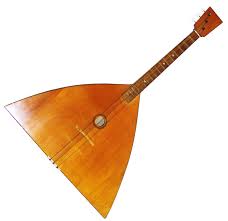
Политическая динамика в этом макрорегионе ясна, и в ближайшие времена резкие перемены не ожидаются. Непростая для журналиста ситуация усугубляется еще и резким падением влияния этих стран на судьбы человечества…
В глобализированном мире ситуация кардинально изменилась: границы открыты, люди свободно путешествуют. Технологическая революция дала широкие возможности любому гражданину и СМИ….
Какие сейчас самые привлекательные для СМИ текущие события в мире? Давайте попробуем перечислить.
Энергетическая революция в США и Северной Америке в целом.
Китайское развитие.
Иранский и северокорейский ядерные планы.
Проблема суверенитета островов в Желтом море.
Последствия «арабской весны» в Африке и на Ближнем Востоке.
Посткризисная эволюция в политике и финансовой среде ЕС.
Бразильский экономический бум и бурная обстановка в Венесуэле.
Религиозные перемены в католической церкви…
А что Россия? Что она делает во время столь бурных мировых перемен? Какие ответы дает на вызовы современности?…
Грустно об этом говорить, но, похоже, скоро придется ждать нового падения метеорита или первого боя чемпиона по боксу Виталия Кличко в Верховной раде, чтобы мир снова обратил внимание на Россию или на Украину.
Статья – Джузеппе Д’Амато Московский Комсомолец Giuseppe D’Amato Moskovskij Komsomolets.
18 Mar: New SIPRI data on arms transfers – China replaces UK as world’s fifth largest arms exporter
China has become the fifth largest exporter of major conventional arms worldwide, according to new data on international arms transfers published by SIPRI. This is the first time China has been in the top five arms exporters since the end of the cold war. Overall, the volume of international transfers of major conventional weapons grew by 17 per cent between 2003–2007 and 2008–12.
The five largest suppliers of major conventional weapons during the five-year period 2008–12 were the United States (30 per cent of global arms exports), Russia (26 per cent), Germany (7 per cent), France (6 per cent) and China (5 per cent). This is the first time that the UK has not been in the top five since at least 1950, the earliest year covered by SIPRI data. China’s displacement of the UK is the first change in the composition of the top five exporters in 20 years.
The volume of Chinese exports of major conventional weapons rose by 162 per cent between 2003–2007 and 2008–2012, and its share of the volume of international arms exports increased from 2 to 5 per cent.
‘China’s rise has been driven primarily by large-scale arms acquisitions by Pakistan,’ said Dr Paul Holtom, Director of the SIPRI Arms Transfers Programme. ‘However, a number of recent deals indicate that China is establishing itself as a significant arms supplier to a growing number of important recipient states.’
Asian imports strengthen naval capabilities
In the period 2008–12 Asia and Oceania accounted for almost half (47 per cent) of global imports of major conventional weapons. The top five importers of major conventional weapons worldwide—India (12 per cent of global imports), China (6 per cent), Pakistan (5 per cent), South Korea (5 per cent), and Singapore (4 per cent)—were all in Asia.
Several countries in Asia and Oceania have in recent years ordered or announced plans to acquire long-range strike and support systems that would make them capable of projecting power far beyond their national borders. Last year notably saw the delivery of a nuclear-powered submarine from Russia to India and the commissioning of China’s first aircraft carrier, Liaoning.
Other regional players are seeking to establish or strengthen submarine fleets, including several South East Asian countries and Australia, which is also acquiring large surface warships and combat aircraft. These developments come at a time of heightening tensions over territorial disputes in the East and South China seas.
Austerity bites in the European arms market
Deliveries to European countries fell by 20 per cent between 2003–2007 and 2008–12. European states seem eager to abandon or reduce a range of arms import plans. During 2012 Italy and the Netherlands reduced their orders for F-35 combat aircraft from the USA, while Bulgaria, Croatia and Romania dropped plans for newly produced combat aircraft in favour of second-hand options.
Many European states are also seeking to export newly acquired combat aircraft that they can no longer afford to maintain. For example, Portugal is seeking buyers for its new fleet of F-16s and Spain is seeking to sell newly purchased Eurofighter Typhoons.
‘With the financial crisis in Europe, the withdrawal from Iraq and the drawdown in Afghanistan, we can expect to see Europe trying to export a considerable volume of surplus military equipment,’ said Mark Bromley, Senior Researcher with the SIPRI Arms Transfers Programme.
Other notable developments
- Russia accounted for 71 per cent of exports of major weapons to Syria in 2008–12 and continued to deliver arms and ammunition in 2012.
- The Arab states of the Gulf accounted for 7 per cent of world arms imports in 2008–2012. Missile defence systems were an important element in their latest arms acquisitions, with orders placed in 2011–12 for Patriot PAC-3 and THAAD systems from the USA.
- Deliveries of weapons system to Venezuela as part of its ongoing rearmament programme continued in 2012. Russia accounted for 66 per cent of transfers to Venezuela, followed by Spain (12 per cent) and China (12 per cent).
- Imports by North African states increased by 350 per cent between 2003–2007 and 2008–12, which was almost entirely responsible for a doubling (by 104 per cent) in imports by Africa as a whole.
- Sub-Saharan imports increased by just 5 per cent. Most countries in sub-Saharan Africa imported only small numbers of major weapons, but many of these have been used in internal conflicts or in interventions in conflicts in neighbouring states, most recently in Mali.
- Greece’s arms imports fell by 61 per cent between 2003–2007 and 2008–12, pushing it from the number 4 importer to number 15. In 2006–10 Greece was the top recipient of German arms exports and the third largest recipient of French arms exports.
Anti-missile defence, US change of plans. No interceptors for Europe. Russia and Poland not happy.
18 Mar 2013 To fund boosting its west coast defences, the US is to scrap plans to place SM-3 IIB missile in Europe and deploy them in Alaska.
The long-range interceptors were to have been the final phase of a program that Russia contends aims to counter its own missiles. Washington says the system is meant to stop missiles from Iran and North Korea.
U.S. Defence Secretary Chuck Hagel, however, stressed that plans are on track to deploy shorter-range missiles to Poland and Romania within the next five years.
“We feel no euphoria in connection with what was announced by the U.S. defence secretary, and we see no grounds for correcting our position”, said Russian Deputy Foreign Minister Sergei Ryabkov.
“This is not a concession to Russia and we do not see it as such,” he added. “We will continue a dialogue and seek the signing of legally binding agreements that all elements of the U.S. missile-defence system are not aimed at Russian strategic nuclear forces.”
In recent past U.S. defence and political officials stated that shorter-range interceptors would still be based in Poland as part of NATO’s missile defence system in Europe.
The Obama administration has planned to put medium-range interceptors in Redzikowo, in northern Poland, starting in 2018, as part of the NATO system.
The U.S. missile defence plans involve building up the system in Europe in four stages, with shorter- and medium-range interceptors to be deployed in the first three phases, and longer-range interceptors due in the fourth phase.
However, the fourth stage has not yet been funded by Congress, and there are indications the technology is not ready. At the same time they have been an irritant in relations between the U.S. and Russia.
Phase one of the system has already been deployed, with anti-missile interceptors on a ship in the Mediterranean Sea. Phase two is to include interceptors in Romania, then interceptors in Poland will come as part of phase three.
The U.S. missile defence system at Romania’s Deveselu military base is not affected either and will become operational in 2015 as planned.
Poland’s main aim in having the U.S. interceptors has been to have an American military presence on Polish soil in the belief it will increase the country’s security, particularly given fears that Russia could one day try to dominate the region again.
The US will now add 14 interceptors against incoming missile threats, to the 30 already in place in California and Alaska by 2017.
Sources: PAP, Reuters, AP, AFP
Большой театр, «хватит!»
17 Mar 2013 «Большой театр, бывший когда-то национальной гордостью, стал большим национальным позором. Превратился в театр оперОв и балета. Из рубрики «культура» перешел в «криминал» …. 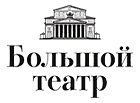
Надоело читать, слушать, смотреть все это. Даже думать на эту тему надоело. Подавляющему большинству добропорядочных граждан, уверен, уже абсолютно все равно, кто там у вас кого бюджетно заказал за 50 тысяч рублей (цена пары дюжин билетов на галерку у облепивших театр спекулянтов). К вашему прогоревшему до золы очагу культуры есть только одно пожелание: чтобы вы все там в хорошем смысле слова заткнулись.
Господин Путин или господин Медведев … Наймите новое руководство (лучше бы иностранное, без преступно-артистических связей на территории РФ), которое заново ее наберет. Пусть частью из нынешних артистов, но непременно — заново. Чтобы и духа не осталось от этих диких враждующих тейпов…
Статья – Айдер Муждабаев Московский Комсомолец № 26184 от 13 марта 2013 г. Ayder Muzhdabayev Moskovskij Komsomolets.
“La Chiesa ortodossa russa saluta la scelta del Conclave – ha dichiarato il diacono Aleksandr Volkov, portavoce del Patriarca di Mosca e di tutte le Russie Kirill -. E come in passato spera che i rapporti tra le due Chiese si sviluppino in modo positivo”. 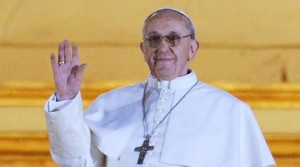
Anche il mondo ortodosso ha seguito da vicino l’elezione del Pontefice. I principali canali televisivi hanno tenuto in questi giorni lunghe dirette da Roma ed i notiziari odierni hanno aperto con le immagini di Papa Francesco.
L’autorevole protodiacono Andrej Kuraev ha scritto sul suo blog di avere “ottime sensazioni” e si è augurato che la vicinanza del nuovo Pontefice al popolo semplice portino successo alla sua missione.
Nei giorni scorsi il capo del settore informativo del Patriarcato di Mosca Vladimir Legojda ha ribadito che il tanto atteso incontro tra il Papa ed il Patriarca di Mosca dovrà essere “il risultato di passi seri intrapresi e di decisioni importanti”.
Dal Sud America il rappresentante della Chiesa ortodossa russa all’estero, il vescovo di Caracas Ioann, ha ricordato l’eccezionale aiuto logistico fornito da monsignor Bergoglio all’organizzazione di una mostra di icone nel dicembre scorso presso l’Università cattolica argentina a Buenos Aires. “E’ una persona semplice – ha detto il prelato – ed ha un buon rapporto con la Russia”.
By 2017 Northern America will achieve the energy independence and will start to export oil and gas abroad. New competitors to Russia are emerging everywhere in the world.
* * *
“In a reported world first, Japan extracted natural gas from methane hydrate, considered a next-generation energy source, in the Pacific seabed off Aichi Prefecture, the Ministry of Economy, Trade and Industry said.
“We started production of a certain amount of methane gas from around 9:30 a.m.,” a ministry official said, noting that if the gas can be extracted without any problems for about two weeks in the ongoing trial, it will be a “major step” toward future commercial development of the resource.
Large concentrations of methane hydrate are believed to exist under the seabed around Japan. Last October, a research team from Meiji University discovered the substance under the seabed in the Sea of Okhotsk and in the Sea of Japan off Akita, Yamagata and Niigata prefectures. There is also a high possibility that it also exists under the seabed off Shimane Prefecture.
Total deposits of methane hydrate around Japan are estimated to be sufficient to cover domestic consumption of natural gas for about 100 years… ”
Full Article – Kyodo – Japan Times
Шенгенские визы и ценности.
11 Mar 2013 «Эх, все-таки хочется России в заветную Европу! Если уж не в качестве государства — члена ЕС, как обещал к 2017 году Андрей Богданов, кандидат в президенты и один из могильщиков партии «Правое дело», так хотя бы без унизительного визового режима. Ведь именно его отмена является главным внешнеполитическим императивом России по отношению к Евросоюзу…. 
В Европе, глядя на сегодняшнюю Россию, нередко сомневаются, является ли она частью «общего европейского дома». Не только географически, но и с точки зрения ценностей….
Россия традиционно колеблется между тремя культурными направлениями — европейским, азиатским и так называемым «особым путем», о котором сразу вспоминают, когда нужно отмахнуться от критики с разных, в основном западных, сторон. Мол, мы занимаем 1/7 часть суши, и у нас другие порядки. Впрочем, мало кто знает точный ответ на вопрос, какие.
Согласно прошлогоднему опросу социологической компании «Левада-центр», всего 11 процентов россиян заявили, что чувствуют свою связь с Европой. В то время, как 52 процента не чувствуют совершенно никакой связи. Хуже того, по опросу 2007 года 71 процент жителей России вообще не считают себя европейцами…
Так, значит, россиянам на самом деле не место в Европе и зря их политическое руководство тратит силы на отмену визового режима?
На мой взгляд, современная Россия отнюдь не является ни «оплотом человечества», ни третьим Римом….
Статья – Иржи Юст Московский Комсомолец 11 марта 2013.
60 лет от смерти «отца народов».
7 Mar 2013 «В тот мартовский день, 5 марта 1953 года, у тела вождя Василий Сталин первым закричал, что отца убили. Василий был сильно пьян да еще добавил в помещении охраны. Но так думал не он один. И вот уже шестьдесят лет многих не покидает уверенность в том, что Сталина загубили. А ведь мог еще и пожить… И такая тоска по вождю! 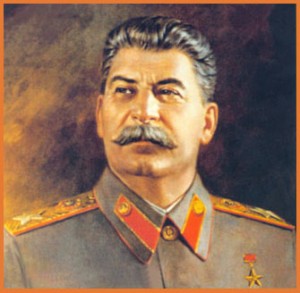
Мечта немалого количества людей — чтобы их боялись. Многие желают ощущать себя сталинскими соколами, гвардией вождя. И кто сейчас помнит, что его подручные безумно — до инфаркта, до помешательства — боялись Сталина?
В опалу мог попасть любой. У Сталина не было вечных привязанностей. Даже чекисты были для него расходным материалом. Чекисты работали вахтовым методом. Призванная на Лубянку команда получала все: квартиры, пайки, звания, ордена. Когда задача исполнялась, команду уничтожали и набирали следующую…
Статья – Леонид Млечин – Московский Комсомолец № 26179 от 5 марта 2013 г.
Die Stalingrad-Protokolle was compiled by German historian Jochen Hellbeck, professor at Rutgers University in New Jersey, who gained access to the archives at the Soviet Academy of Sciences in Moscow, where he found several thousand interviews with Second World War Red Army soldiers. 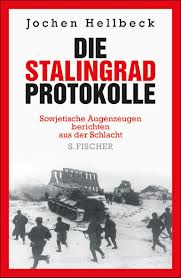
Mr. Professor, could you briefly tell us the story of the “Stalingrad Protocols” and why they remained in the archives for so many years?
The Stalingrad Protocols emerged as the result of the work of the Moscow’s Commission of historians. A small delegation was sent to Stalingrad in December 1942 before the battle was over. They collected hundreds of interviews to the Defenders of Stalingrad. They talked to commanders, famous people, but also simple soldiers and civilians. All together they created a huge documentary imprint that was then hidden, because it is about the people’s war. That was good for the regime during the conflict when the regime needed the people backing. But after the war Stalin claimed the victory just for himself. These documents were dangerous for him and they disappeared.
* * * Author: Giuseppe D’Amato
Jochen3inglese – Interview
Welcome
We are a group of long experienced European journalists and intellectuals interested in international politics and culture. We would like to exchange our opinion on new Europe and Russia.
Categories
- Breaking News (11)
- CIS (129)
- Climate (2)
- Energy&Economy (115)
- EU Eastern Dimension (85)
- Euro 2012 – Sochi 2014 – World Cup 2018, Sport (43)
- Euro-Integration (135)
- History Culture (198)
- International Policy (261)
- Military (74)
- Interviews (18)
- Italy – Italia – Suisse (47)
- Odd Enough (10)
- Poland and Baltic States (126)
- Religion (31)
- Russia (421)
- Survey (4)
- Turning points (4)
- Ukraine (176)
- Российские страницы (113)
Archives
- November 2020
- October 2020
- September 2020
- August 2020
- July 2020
- May 2020
- April 2020
- March 2020
- January 2020
- December 2019
- November 2019
- October 2019
- September 2019
- August 2019
- July 2019
- June 2019
- May 2019
- April 2019
- March 2019
- February 2019
- December 2018
- November 2018
- October 2018
- September 2018
- August 2018
- July 2018
- June 2018
- May 2018
- April 2018
- March 2018
- February 2018
- January 2018
- December 2017
- November 2017
- October 2017
- September 2017
- August 2017
- July 2017
- May 2017
- March 2017
- January 2017
- December 2016
- November 2016
- October 2016
- September 2016
- July 2016
- June 2016
- May 2016
- April 2016
- February 2016
- January 2016
- November 2015
- October 2015
- September 2015
- June 2015
- April 2015
- March 2015
- February 2015
- January 2015
- December 2014
- November 2014
- October 2014
- September 2014
- August 2014
- July 2014
- June 2014
- May 2014
- April 2014
- March 2014
- February 2014
- January 2014
- December 2013
- November 2013
- October 2013
- September 2013
- August 2013
- July 2013
- June 2013
- May 2013
- April 2013
- March 2013
- February 2013
- January 2013
- December 2012
- November 2012
- October 2012
- September 2012
- August 2012
- July 2012
- June 2012
- May 2012
- April 2012
- March 2012
- February 2012
- January 2012
- December 2011
- November 2011
- October 2011
- September 2011
- August 2011
- July 2011
- June 2011
- May 2011
- April 2011
- March 2011
- February 2011
- January 2011
- December 2010
- November 2010
- October 2010
- September 2010
- August 2010
- July 2010
- June 2010
- May 2010
- April 2010
- March 2010
- February 2010
- January 2010
- December 2009
- November 2009
- October 2009
- September 2009
- August 2009
Our books





